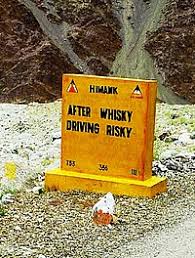
Prioritising Safety: A Guide to Ensuring Well-being in Everyday Life
The Importance of Safety in Everyday Life
Safety is a fundamental aspect of our daily lives that often goes unnoticed until it is compromised. Whether at home, work, or on the road, prioritising safety is crucial for preventing accidents and ensuring well-being.
One of the key areas where safety should never be overlooked is in the workplace. Employers have a legal and moral obligation to provide a safe working environment for their employees. This includes proper training, adequate safety equipment, and regular risk assessments to identify and mitigate potential hazards.
When it comes to road safety, simple measures such as wearing a seatbelt, obeying speed limits, and avoiding distractions while driving can significantly reduce the risk of accidents. Pedestrians and cyclists also play a vital role in road safety by following traffic rules and staying visible to drivers.
At home, basic precautions like installing smoke alarms, keeping electrical appliances in good condition, and securing windows and doors can prevent fires, electrocution, and break-ins. It is essential to teach children about household safety from a young age to instil good habits that will protect them as they grow up.
Overall, safety should be a top priority in all aspects of life. By being proactive and mindful of potential risks, we can create a safer environment for ourselves and those around us. Remember: safety first!
Essential Safety Tips for Everyday Situations
- Always wear your seatbelt when travelling in a vehicle.
- Lock your doors and windows when you leave your home or car.
- Avoid walking alone in poorly lit or isolated areas, especially at night.
- Do not disclose personal information to strangers or over the phone.
- Regularly check and maintain smoke alarms in your home.
- Learn basic first aid skills to assist in emergencies.
Always wear your seatbelt when travelling in a vehicle.
It is essential to always wear your seatbelt when travelling in a vehicle. Seatbelts are designed to protect you in the event of a collision by preventing you from being thrown forward and minimising the risk of serious injuries. By buckling up before starting your journey, you are taking a simple yet effective step towards ensuring your safety and the safety of others in the vehicle. Remember, seatbelts save lives, so make it a habit to buckle up every time you get into a vehicle.
Lock your doors and windows when you leave your home or car.
It is crucial to always remember to lock your doors and windows when leaving your home or car. This simple yet effective safety measure can deter potential intruders and protect your property from theft or vandalism. By taking the time to secure your premises before you depart, you are significantly reducing the risk of break-ins and ensuring the safety of your belongings and loved ones. Remember, a locked door or window can be the first line of defence in safeguarding your home or vehicle.
Avoid walking alone in poorly lit or isolated areas, especially at night.
It is crucial to prioritise personal safety by avoiding walking alone in poorly lit or isolated areas, particularly during the night. These environments can pose increased risks of potential harm or danger. By taking proactive measures to stay in well-lit and populated areas when walking alone, individuals can reduce the likelihood of becoming targets for criminal activities. It is essential to be aware of one’s surroundings and make informed decisions to safeguard personal well-being.
Do not disclose personal information to strangers or over the phone.
It is crucial to safeguard your personal information by refraining from sharing it with strangers or divulging it over the phone. Protecting sensitive details such as your address, financial information, or personal identification numbers is essential to prevent identity theft, fraud, or other malicious activities. Be cautious and verify the legitimacy of any requests for personal information before providing it, ensuring that you maintain control over your privacy and security at all times.
Regularly check and maintain smoke alarms in your home.
Regularly checking and maintaining smoke alarms in your home is a crucial step in ensuring the safety of your household. Smoke alarms serve as early warning systems that can alert you to potential fire hazards, giving you precious time to evacuate and seek help. By testing your smoke alarms regularly, replacing batteries as needed, and conducting annual inspections to ensure they are functioning correctly, you can significantly reduce the risk of fire-related injuries and property damage. Remember, a properly maintained smoke alarm could save lives in the event of a fire emergency.
Learn basic first aid skills to assist in emergencies.
Learning basic first aid skills is a crucial aspect of ensuring safety in emergencies. By acquiring knowledge of simple first aid techniques, such as CPR, bandaging wounds, and treating burns, individuals can be better prepared to provide immediate assistance when someone is injured or falls ill. These skills can make a significant difference in the outcome of an emergency situation and may even save lives. Investing time in learning first aid is an invaluable step towards promoting safety and well-being in both personal and public settings.
